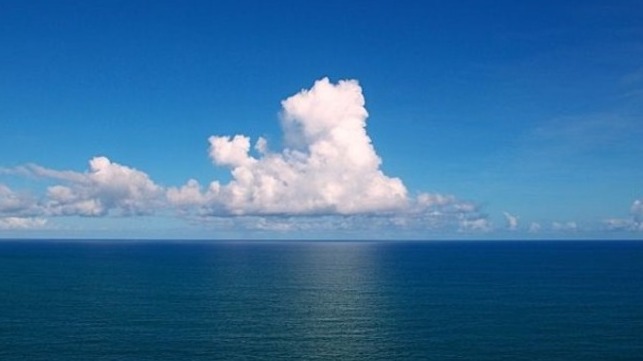North American Shipping Industry Forms Decarbonization Coalition

Recognizing that it will be critical for all segments of the maritime industry to work together to achieve the goals of reducing GHG emissions, a broad range of companies in the U.S. and Canada from all parts of the sector are forming a coalition to accelerate the industry’s pathway to net-zero emissions. Known as the Blue Sky Maritime Coalition, they are recruiting ship owners, builders, charterers, financiers, classification organizations, port authorities, government and non-government organizations for membership and participation in the initiatives.
“Blue Sky Maritime Coalition was born from the realization that the United States and Canada maritime operations are uniquely challenged by this goal of reaching net-zero carbon emissions from maritime activities,” says David H. Cummins, Blue Sky Maritime Coalition President. “We believe that decarbonization is possible, but only if all stakeholders along this end-to-end value chain are willing to rally together to take advantage of the opportunities in this landscape and address these challenges through cross-sectoral collaboration.”
As a non-profit strategic alliance whose members represent all aspects of the maritime value chain in North America, Blue Sky will develop projects to achieve a commercially viable net-zero emissions waterborne logistics sector.
According to the founding board members, which include executives from Shell, Kirby Corp., Washington Maritime Blue, Marsoft, and Moran Towing, the maritime value chain is critical to the global economy. Everyone agrees that decarbonization is the key challenge the industry faces in the coming years, but within the sector, there are different types of challenges and entirely different value chain models, whether waterborne activities move products globally from one continent to another, or through thousands of miles of inland, Great Lakes and coastal waterways. Concentrated on regional waterborne transportation across North America, the coalition’s focus complements other organizations’ efforts targeting maritime decarbonization goals.
The coalition will focus on four broad areas, including technology, infrastructure, and fuels; regulatory policy and incentives; commercial and chartering finances; and measurement and operational efficiencies. The coalition will seek to facilitate collaboration among industry stakeholders both regionally and globally as well as identify, evaluate, encourage, and engage in commercial and technical pathways and projects that deliver significant near-term reductions in GHG emissions and lead to commercially viable net-zero emissions.

that matters most
Get the latest maritime news delivered to your inbox daily.
Membership is open to all stakeholder organizations who are willing to meet the membership obligations by actively participating in achieving the coalition’s stated objectives and comply with the organization’s collaborative and antitrust provisions.
Founding members of the coalition include ABS (American Bureau of Shipping), Bay Houston Towing Co., Caterpillar, Centerline Logistics, Chamber of Shipping of America, Citi, Crowley, Green Marine, Holland & Knight LLP, Kirby Corp., Lloyd’s Register, Marine Money, Marsoft Inc., MIT Sea Grant, Moran Towing, OSG, Port Houston, Purus Marine, Shell, The American Waterways Operators, The Water Institute of the Gulf, Vancouver Fraser Port Authority, Wärtsilä North American, Inc., and Washington Maritime Blue. Additionally, DNV, Matson, and Seaspan are Supporting Sponsors, and the Getting to Zero Coalition is a Knowledge Partner of the Coalition.
